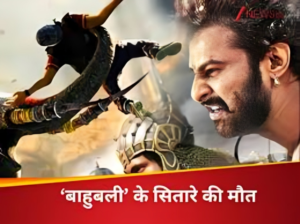Baahubali’s Penman: Siva Shakthi Datta Bids Farewell at 92
A stalwart of Indian storytelling and the creative force behind the epic “Baahubali” saga, Siva Shakthi Datta passed away today at the age of 92 after a brief struggle with age-related health issues. Known for weaving grand narratives that captured hearts across the globe, Datta’s legacy spans decades of screenwriting, poetry, and mentorship. In this tribute, we explore his journey from humble beginnings to cinematic legend, celebrate his contributions, and reflect on the indelible mark he left on India’s film industry.
Introduction: A Life Penned with Passion
Born into a literary family, Datta’s early years were steeped in poetry and ancient lore. As whispers of his youthful scribbles spread through Andhra Pradesh, few could predict that this lad with a pen would one day craft one of the highest-grossing film series in Indian history. His scripts brimmed with mythology, heroism, and the timeless struggle between good and evil—elements that resonated deeply with audiences far and wide.
Key highlights of his journey:
- First published poems at age 20
- Screenwriting debut in the late 1960s
- Collaboration with director S. S. Rajamouli on the “Baahubali” saga

Genesis of a Master Storyteller
Datta’s creative spark kindled early. Raised by parents who recited the Mahabharata at bedtime, he absorbed tales of valor and destiny like a thirsty traveler quenched by monsoon rains. His first breakthrough came when a regional magazine published his epic poem about a wandering prince—little did he know this would be the stepping stone to Bollywood glory.
Building Blocks of “Baahubali”
- Research & Roots
Datta spent months delving into ancient texts, folk tales, and local legends. He believed authenticity was the soul of storytelling. - Character Crafting
From the fierce Kattappa to the noble Amarendra Baahubali, each persona bore shades of real individuals Datta met in his travels. - Dialogue That Dances
His dialogues blended classical Telugu with rustic charm, sprinkling lines that felt both royal and relatable—a balance as tricky as riding a wild stallion.
Mid-Section Spotlight: The Baahubali Phenomenon
As the camera rolled and the battle horns sounded, audiences were hooked. “Baahubali: The Beginning” shattered box-office records, and its sequel, “Baahubali 2: The Conclusion,” cemented Datta’s status as a cinematic bard. Critics lauded the films for their sweeping visuals, stirring scores, and above all, the heart in its writing.
Why Datta’s Scripts Struck a Chord:
- Emotional Depth: Scenes of sacrifice and brotherhood felt eerily familiar yet fresh.
- Universal Themes: Power, honor, and love—stories as old as time, retold with flair.
- Memorable One-Liners: Fans still quote lines like, “Kattappa ne Baahubali ko kyun maara?” with goosebumps.

Legacy Beyond the Silver Screen
Even after the curtain fell on the “Baahubali” series, Datta’s influence endured. He mentored young writers, held workshops in small towns, and championed regional cinema. His rustic humor—often marked by a cheeky “arre yaar”—endeared him to students who saw not just a legend, but a relatable teacher.
Lessons from a Legend
- Stay Rooted: Draw inspiration from your heritage; authenticity resonates.
- Embrace Collaboration: Great epics require a team; writers, directors, artists—unity breeds greatness.
- Never Stop Learning: At 80, Datta was still scouting for new folklore to adapt; curiosity kept his pen alive.
Conclusion: An Endless Tale
Siva Shakthi Datta’s passing marks the end of an era, but his stories live on—etched in celluloid and hearts alike. As fans revisit the world of Mahishmati, they’ll find his spirit in every heroic clash, every tearful farewell, and every triumphant roar. Indeed, while Datta may have taken his final bow, the epics he penned will echo across generations, reminding us that a well-told story never truly dies.